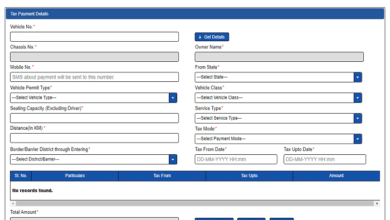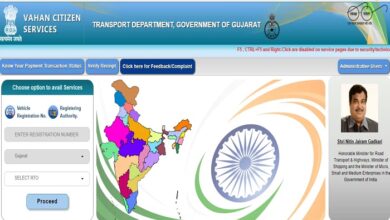Licence Check: A Comprehensive Guide

Introduction
A licence check is an essential process for verifying the validity and status of various types of licenses. Whether it’s a driver’s licence, professional certification, or business permit, conducting a licence check ensures compliance with legal requirements and promotes safety and trust. This comprehensive guide will delve into the significance of licence checks, how they are performed, and their benefits across different sectors.
Understanding the importance of a licence check can help individuals and organizations make informed decisions and avoid potential legal issues. This blog post will provide a detailed overview of the licence check process, its applications, and practical tips for conducting effective checks.
What is a Licence Check?
A licence check is a procedure used to verify the authenticity and current status of a licence. This could be a driver’s licence, professional certification, business permit, or any other type of licence issued by a regulatory authority. The main purpose of a licence check is to ensure that the licence holder is authorized and qualified to perform specific activities or services.
Conducting a licence check involves accessing relevant databases and records to confirm that the licence is valid and has not expired, been suspended, or revoked. This process is crucial for maintaining safety, compliance, and trust in various professional and personal contexts.
Importance of Licence Check
The importance of a licence check cannot be overstated. For employers, conducting a licence check ensures that employees or job candidates possess the necessary qualifications and authorizations to perform their duties. For consumers, a licence check can provide peace of mind when hiring professionals such as contractors, healthcare providers, or drivers.
Moreover, a licence check helps prevent fraud and unauthorized activities by verifying the legitimacy of licences. It also promotes compliance with legal and regulatory standards, reducing the risk of fines, penalties, and other legal repercussions. Ultimately, a licence check is a vital tool for protecting public safety and maintaining professional standards.
Types of Licences That Require a Check
Various types of licences require regular checks to ensure their validity. Some of the most common types include:
- Driver’s Licences: Verifying that drivers have valid licences and are authorized to operate specific types of vehicles.
- Professional Certifications: Ensuring that professionals such as doctors, nurses, engineers, and lawyers are properly certified and licensed to practice.
- Business Permits: Confirming that businesses have the necessary permits and licences to operate legally.
- Trade Licences: Verifying the qualifications and licences of tradespeople such as electricians, plumbers, and builders.
- Health and Safety Licences: Ensuring compliance with health and safety regulations for industries such as construction and manufacturing.
Each type of licence check serves a specific purpose and is essential for maintaining standards and safety in various fields.
How to Conduct a Licence Check
Conducting a licence check involves several steps to ensure accuracy and compliance. Here is a general guide on how to perform a licence check:
- Identify the Type of Licence: Determine the specific licence you need to check, such as a driver’s licence, professional certification, or business permit.
- Gather Information: Collect relevant information about the licence holder, such as name, licence number, and issuing authority.
- Access Relevant Databases: Use online databases or contact regulatory bodies to verify the licence details. Many authorities provide online portals for licence verification.
- Verify Status: Check the current status of the licence to ensure it is valid, active, and free from suspensions or revocations.
- Document Findings: Keep a record of the licence check results for future reference and compliance purposes.
Following these steps can help ensure a thorough and accurate licence check process.
Benefits of Licence Check
There are numerous benefits to conducting a licence check, including:
- Safety and Compliance: Ensures that individuals and businesses comply with legal and regulatory standards, promoting safety and trust.
- Fraud Prevention: Helps prevent fraud and unauthorized activities by verifying the legitimacy of licences.
- Risk Management: Reduces the risk of legal issues, fines, and penalties by ensuring compliance with licensing requirements.
- Professional Standards: Maintains high professional standards by verifying the qualifications and authorizations of licence holders.
- Consumer Confidence: Provides peace of mind to consumers by ensuring they are dealing with qualified and authorized professionals.
By leveraging these benefits, organizations and individuals can enhance their operations and build trust with their stakeholders.
Challenges in Licence Check
Despite its importance, conducting a licence check can present several challenges. These may include:
- Access to Information: Obtaining accurate and up-to-date information can be difficult, especially if databases are not easily accessible or well-maintained.
- Verification Processes: Different regulatory bodies may have varying verification processes, making it challenging to standardize the licence check procedure.
- Data Privacy: Ensuring compliance with data privacy regulations when accessing and handling personal information during a licence check.
- Resource Intensive: Conducting thorough licence checks can be time-consuming and resource-intensive, particularly for large organizations.
- False Positives/Negatives: Risk of errors in the verification process, leading to false positives (incorrectly identifying a licence as valid) or false negatives (incorrectly identifying a licence as invalid).
Addressing these challenges requires a strategic approach and collaboration with regulatory bodies and technology providers.
Technology Solutions for Licence Check
Technology can play a significant role in streamlining the licence check process. Various software solutions and online platforms are available to facilitate efficient and accurate licence checks. These technology solutions offer features such as:
- Automated Verification: Automates the process of verifying licence details, reducing manual effort and minimizing errors.
- Real-Time Updates: Provides real-time access to updated licence information from regulatory databases.
- Data Integration: Integrates with existing systems to streamline the licence check process and improve data accuracy.
- User-Friendly Interface: Offers intuitive interfaces that make it easy for users to conduct licence checks and access relevant information.
- Compliance Management: Helps organizations manage compliance with licensing requirements and maintain records of licence checks.
By leveraging these technology solutions, organizations can enhance the efficiency and accuracy of their licence check processes.
Best Practices for Licence Check
To ensure effective and accurate licence checks, it is important to follow best practices. Here are some key recommendations:
- Regular Updates: Conduct regular licence checks to ensure ongoing compliance and address any changes in licence status.
- Comprehensive Records: Maintain detailed records of all licence checks, including dates, findings, and any follow-up actions.
- Training and Awareness: Provide training for staff responsible for conducting licence checks to ensure they understand the process and its importance.
- Collaborate with Authorities: Establish strong relationships with regulatory bodies to facilitate access to accurate and up-to-date licence information.
- Use Technology: Leverage technology solutions to streamline the licence check process and improve accuracy.
Implementing these best practices can help organizations conduct effective licence checks and maintain compliance with regulatory requirements.
Legal and Ethical Considerations in Licence Check
Conducting a licence check involves legal and ethical considerations that must be addressed to ensure compliance and protect individuals’ rights. Key considerations include:
- Data Privacy: Adhering to data privacy regulations when accessing and handling personal information during a licence check.
- Consent: Obtaining consent from the licence holder before conducting a licence check, where applicable.
- Accuracy: Ensuring the accuracy of the information used in the licence check process to avoid errors and potential legal issues.
- Transparency: Being transparent with individuals about the purpose and process of the licence check.
- Non-Discrimination: Conducting licence checks fairly and without discrimination based on race, gender, age, or other protected characteristics.
Addressing these legal and ethical considerations is crucial for conducting licence checks responsibly and maintaining trust with stakeholders.
Conclusion:
A licence check is a critical process for ensuring compliance, safety, and trust across various sectors. Whether verifying a driver’s licence, professional certification, or business permit, conducting a thorough and accurate licence check is essential for preventing fraud, maintaining professional standards, and protecting public safety.
By understanding the importance of a licence check and following best practices, individuals and organizations can enhance their operations and build trust with their stakeholders. Leveraging technology solutions can further streamline the process, improving efficiency and accuracy. Ultimately, an effective licence check process is a vital tool for promoting safety, compliance, and confidence in today’s complex and regulated environment.
FAQs
1. What is a licence check? A licence check is a process used to verify the authenticity and current status of various types of licences, such as driver’s licences, professional certifications, and business permits.
2. Why is a licence check important? A licence check ensures compliance with legal and regulatory standards, promotes safety and trust, prevents fraud, and maintains high professional standards.
3. How can I conduct a licence check? To conduct a licence check, identify the type of licence, gather relevant information, access appropriate databases, verify the status, and document the findings.
4. What are the challenges in conducting a licence check? Challenges include accessing accurate information, varying verification processes, data privacy concerns, resource intensity, and the risk of false positives or negatives.
5. How can technology help in the licence check process? Technology solutions can automate verification, provide real-time updates, integrate data, offer user-friendly interfaces, and help manage compliance, improving efficiency and accuracy





